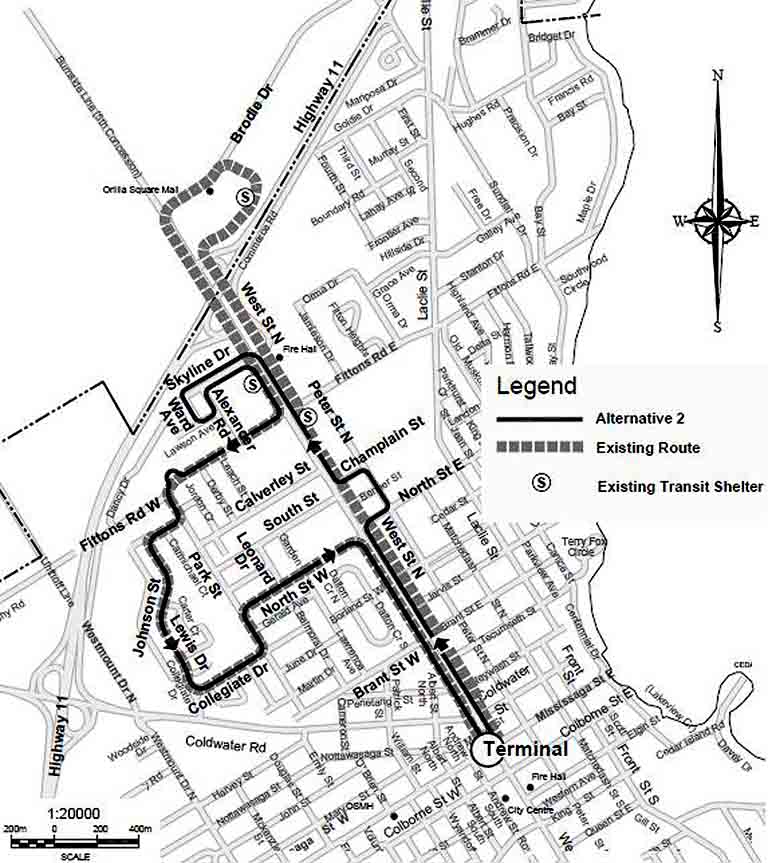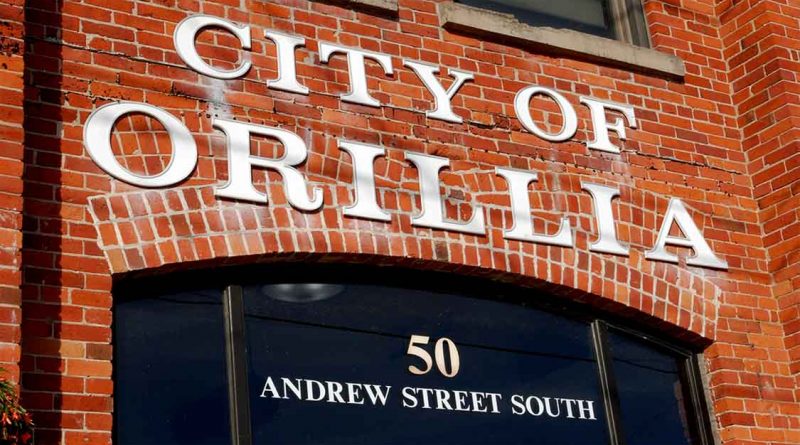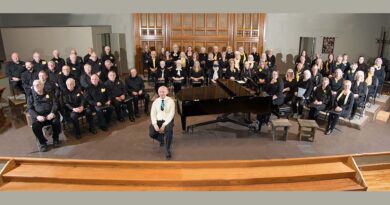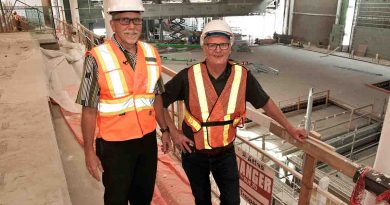Council Preview
By John Swartz
Orillia council has three meetings lined up for Monday afternoon. First is a public meeting on planning matters at 1 p.m. It’s followed by a closed session of council committee at 3:30 p.m., the open session at 4 and whenever that ends the regular council meeting will happen. The latter two will be on Rogers TV while the planning meeting video will be available sometime later.
Up for discussion at the planning meeting is an application for a zoning amendment by James Ward at 177 Parkview Avenue. Ward wants to convert an existing 2 unit house into three units. He does not plan any alteration s to the property, just the building, and staff say a site plan approval is not needed in that case.
The closed session has only one item on its agenda to make appointments to committees of council. Details of which usually are known when council has made decisions and open session starts.
Municipal Election
In open session there are five items. One deals with a report about voting methods for the 2022 municipal election, specifically allowing internet and telephone voting. Normally in the summer council has both committee and regular meetings at the least during the same week, but of late on the same day. One of the clauses of the motion asks to have this item and accompanying by-laws put on the September 20 agenda rather than later today.
Staff is recommending switching entirely to electronic voting and doing away with in person paper ballots. The city will still maintain polling stations to help those who are not computer savvy, but voting will be by computer and online. Whether choosing to vote online of by phone, voters will get what is called a Voter Identification Information Letter with links, a pin and a voter ID number. Staff recommend also including a voter’s date of birth as a second security password. Voting by phone will require the same information.
The system will automatically update the voter’s list to show someone has voted, preventing anyone from switching devices and trying to vote again. The mobile voting system which brings polling stations to those in retirement homes or the hospital will be retained, with the added benefit the tablets used for voting can be brought to the resident or patient, rather than having to leave their rooms to go to a central voting place.
In the 2018 election 194 municipalities used electronic voting. Staff provided a chart showing voter turnout according to method (internet/ paper) and the data does not appear to increase turnout. The largest last election was in Collingwood with 48.9%, though most communities were showing a more typical 30 to 35% turnout. They also state in 2018 there was an issue in the last hours before polls closed, which was caused by the ISP used by all municipalities not having enough bandwidth for the volume of votes being processed.
A second option for council is to use electronic voting for advance polls only and the old method on voting day. Staff say using both methods would make running the election more expensive. Staff estimate running the election on the old method only would cost $120,000, electronic only $115,000 and using both methods $242,000.
Affordable Housing
Council recently increased the size of the council committee by two seats. The City advertised for applicants and received 10 from people with various relevant qualifications on the subject. Staff are asking council to set come priorities for the committee’s work in order to narrow down the field of applicants to those with specific expertise needed.
In the past appointees to committees have not been required to have expertise in an area relevant to a committee and just merely have an interest in serving. 15 years ago the Orillia Public Library Board recruited people with expertise in areas the board believed were needed to guide the operation; council still made the selections, but it was hard to ignore applicants bring something to the table which was needed. It appears this philosophy is being adopted by other boards and committees which is a good sign.
Currently the aim of the committee as outlined in the establishing by-law is pretty broad and while no specific direction is asked for, by having council state what it hopes to accomplish the committee could then be stocked with people who are more likely to be able to contribute in a way which meets the objectives.
Orillia Square Mall Bus Service

Transit North Route Changes
Council has a report recommending discontinuing service to Orillia Square Mall October 31. Neither the property managers
of the mall (Bentall Green Oak) or Severn Township want to contribute $15,500 each to fund the service. In the year before the pandemic ridership increased from approximately 40,000 trips annually to 45,000 and the mall is the most popular stop on the North Route.
Staff propose a new route which would have busses turn at North Street, take Peter to Champlain and return to West Street; then turn at Skyline Drive and circle back to Skyline by way of Ward Ave and Alexander Road.
A new digital sign for Tudhope Park is going to cost more than the $90,000 budget council approved. The lowest bid was $93,659 – for the sign only. The original project budget also included $6,000 for site work and a contingency amount, so the final cost with be higher than $93 thousand.
This project was part of a larger park improvement allocated budget of $200,000 and staff say they can accommodate the increase of this one item without council adding to the budget from reserves. However, the report does not say what other work will not be done in order to shift the money around.
COVID Costs
The Simcoe Muskoka District Health Unit asked the province for $9.5 million extra to their annual budget because of the pandemic. The province gave them $4.4 million pending review. As one can imagine having to jump at the at last minute depending on political whim can be more expensive and the health unit still has to lead and function, so the SMDHU has to borrow $5 million to keep running. They expect the province to provide the funding eventually, but in the meantime the participating municipalities, Barrie, the County and Orillia have to OK the line of credit, which is what is being asked of council in this report.
Enquiry Motions
Councillors Ainsworth and Fallis have a motion to report on the feasibility of changing a business licensing definition relating to selling food. Councillor Lauer has one asking for a report of the feasibility to implement a nuisance lighting by-law.
Regular Council
Council has two reports on the agenda, one from the environment and infrastructure department about options for sand removal from roads and sidewalks in the spring, the other from corporate services directing the 2022 budget be prepared with a 3.5% increase. Neither report is provided in the agenda.
In by-laws, there is one to allow the City to receive $612,077 of combined provincial and federal Investment in Canada Infrastructure Program funding. The money covers replacement of the roof at the municipal operations center on James Street.
Another by-law changes the municipal code to reflect changes under the provinces Main Street Recovery Act; the city can no longer regulate noise related to deliveries to retail stores, restaurants, hotels and distribution facilities.
![]()



![]()
The regular council meeting is a video conference and the chamber is closed to the public. The public can watch it live on Rogers TV.
(Photos by Swartz – SUNonline/Orillia)




